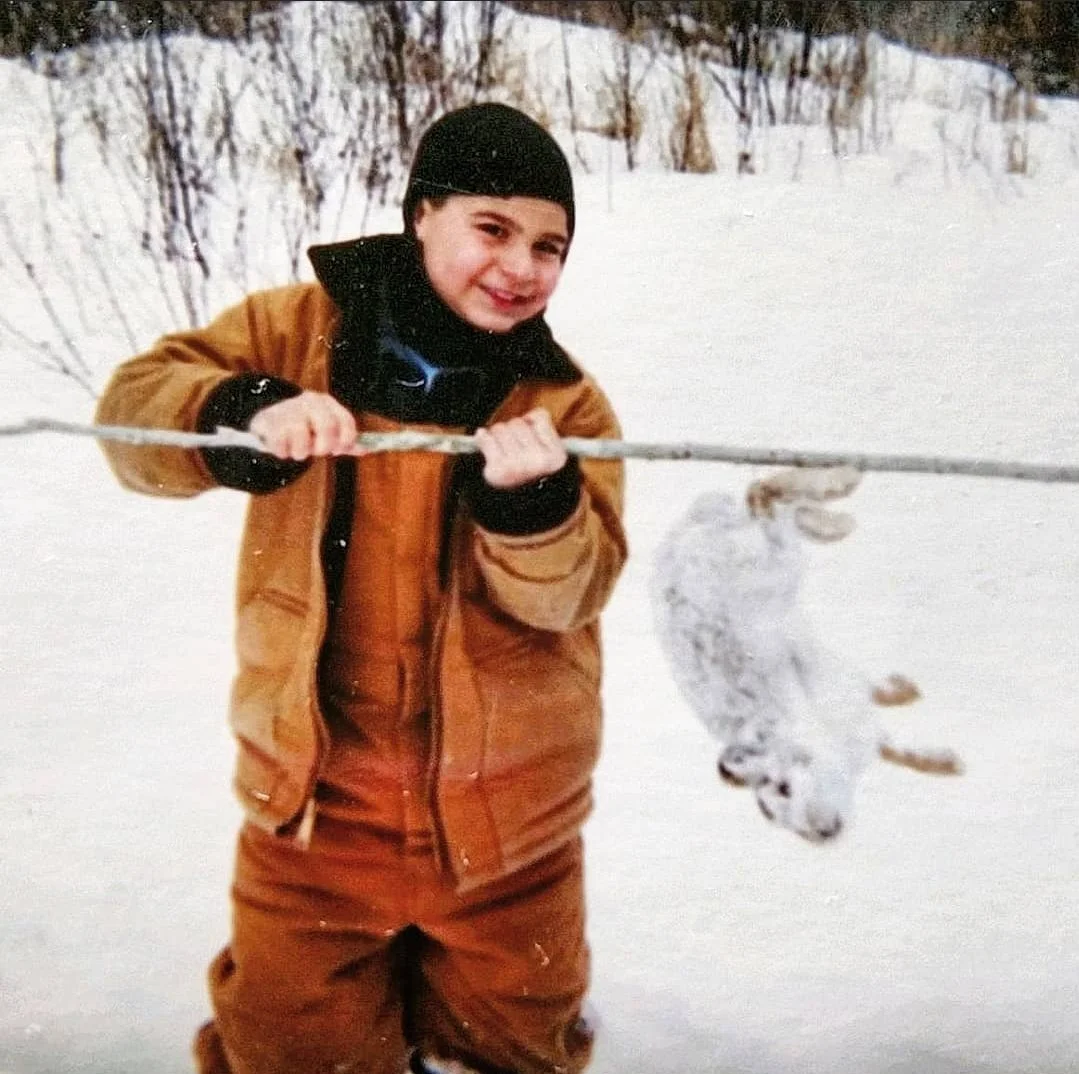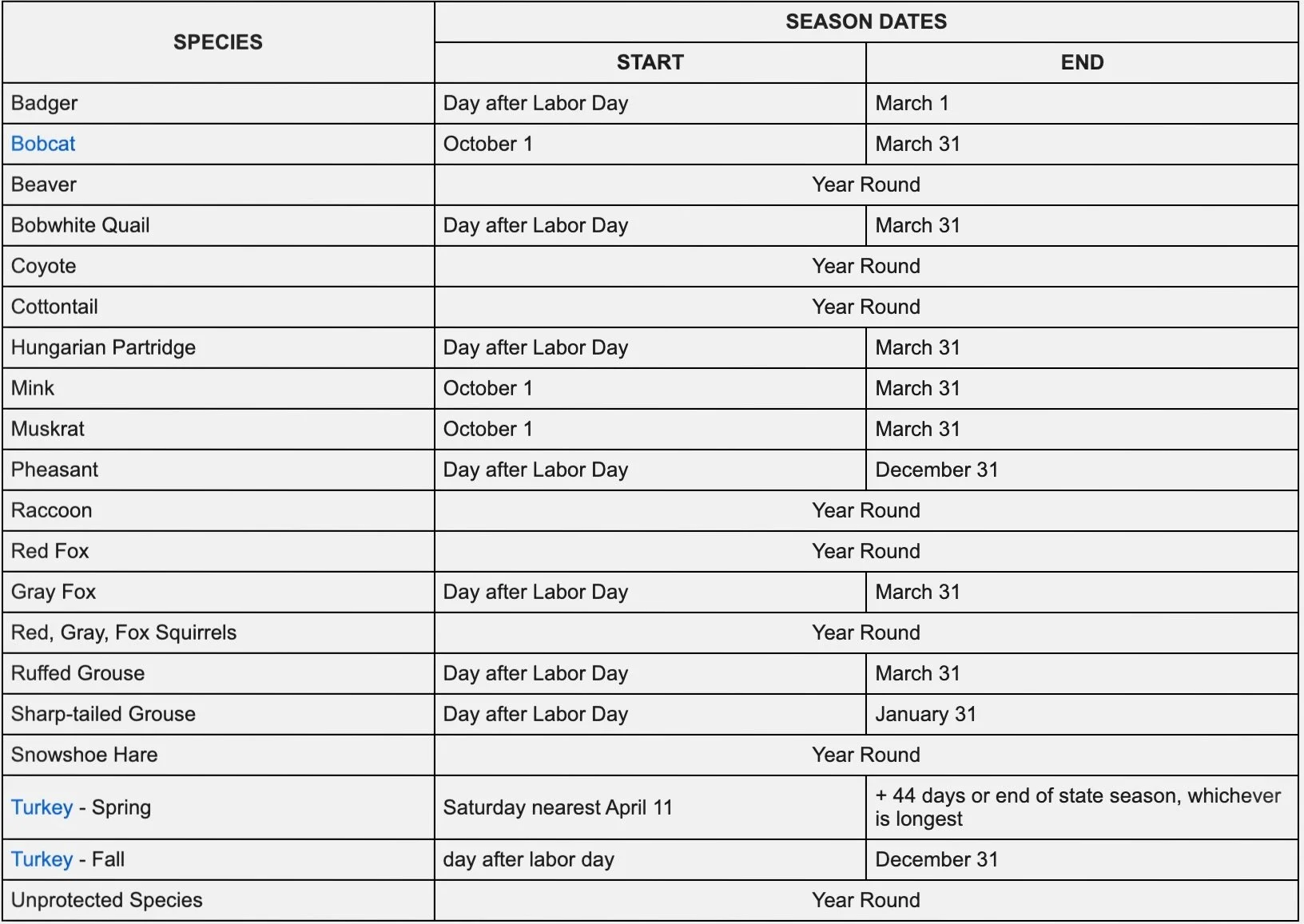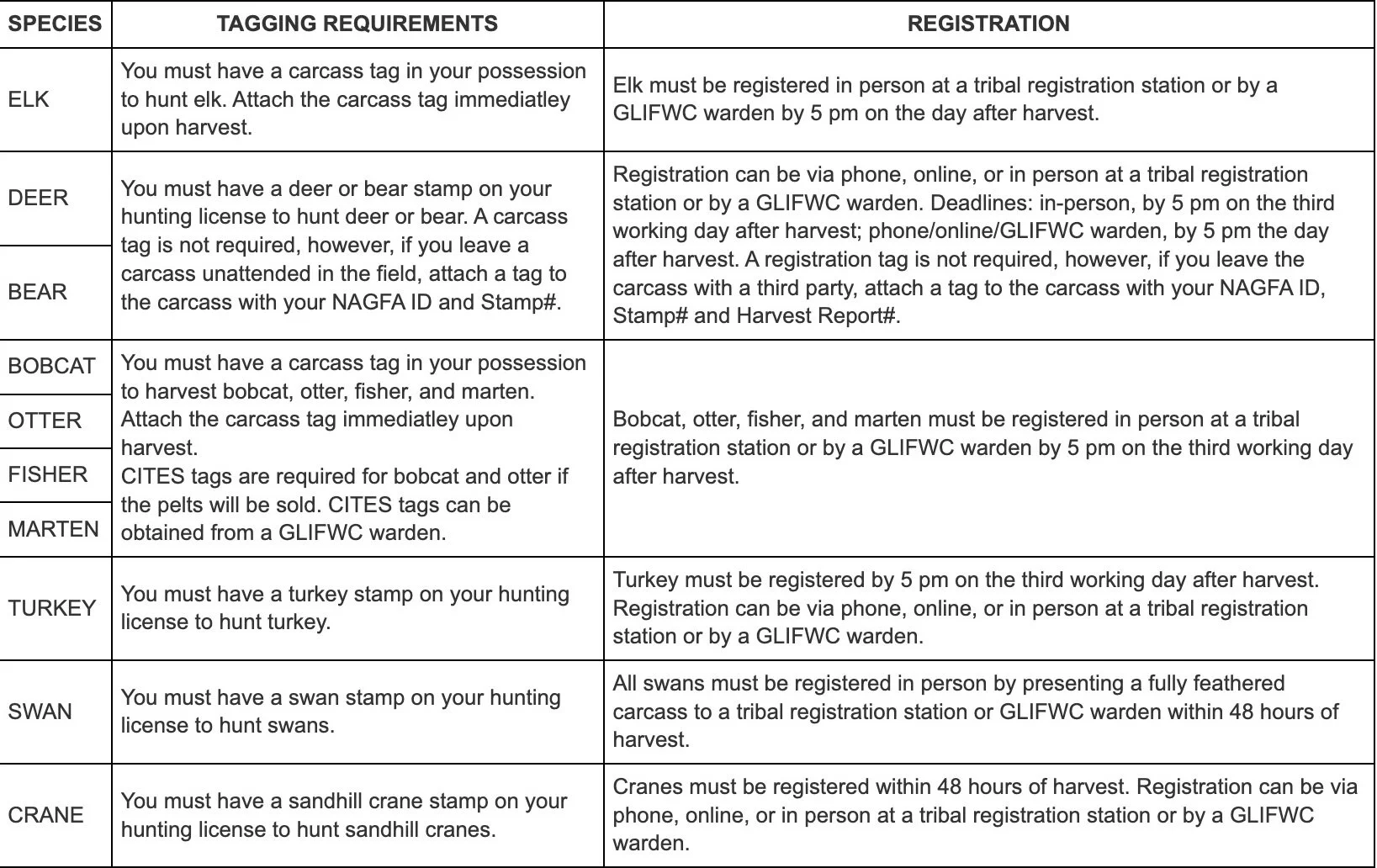WINTER SMALL GAME HARVEST TIME
By Mashkode-bizhikigahbaw Benji Sam
As winter sinks its teeth into the world around us and the days grow colder into the bitter month of January, it's nice to turn the heat up with the wintertime outdoor activities. Instead of sitting in a tree stand, battling the elements waiting for some game to cross your path, this month offers the perfect time to lace the hunting boots up and chase small game.
The most wonderful part about small game hunting this time of year, is almost everywhere you travel, you will likely not encounter another hunter all day. Most people keep their hobbies indoors this time of year, and if you venture out to the woods, you will likely find a high number of critters moving during daylight hours to keep themselves warm too. Therefore, you are also likely to come across a lot of small game animals that aren't as spooky, and you have a better chance of bringing a few home for dinner.
Before the snow falls, these critters can sometimes be very evasive, sticking to the heaviest cover and avoiding well lit trails and areas with high pressure. Once there is a bit of snow cover, squirrels, rabbits, grouse, foxes, coyotes, bobcats, and more will often spend their time next to heavy cover and will leave tracks that make them predictable to us as harvesters. Watch the ground for high travel areas and narrow corridors to walk near or set snares/traps to become very successful. Predatory small game critters will often chase near these heavily wooded travel corridors and have a high likelihood of presenting near these high travel areas in a 48-hour span.
Grouse also become a little more predictable this time of year, and if you're willing to walk, you will likely find a healthy amount around. They will often travel through hick briar patches and young aspen stands feeding in the early, sunny hours of the day or late afternoons on the edges of trails to pick what's left of the gravel and any buds that did not bloom this year. These activities offer such an amazing opportunity for us tribal hunters, because there are very few winter hunters/trappers left, and we can carry on a tradition that dates back as far as the first contact of the Ojibwe in this region.
Most tribal members are not aware that we can harvest most small game until the end of March, and many species can be harvested year-round, to supplement our diet with healthy, natural proteins as well as offering the most beautiful furs of the year for projects such as hats, gloves, moccasins, and more. Historically, this has been one of the most fruitful times of year for protein harvesting because of the sheer effectiveness of setting snares, placing traps, and spotting game patterns in the snow. It's also an especially important time to remember to check beyond your target and to always know what you're shooting for to keep yourself and everyone around you safe.
I can remember the Elders once speaking of snowshoe hares running about the woods around nearly every brush pile and grouse plentiful on each and every trip. While we often only think about chasing prey species, we must also remember that life is about balance, and when we talk about conservation of the resources around us, we often talk about taking game species in balance from each property we harvest from. For example, if you are seeing very little game sign, that is likely not a great property to harvest your limit each trip to the woods. Balance is what makes the world go round, and we must remember that our footprint can change the natural landscape that surrounds us.
The best part of chasing small game is enjoying a few hearty meals after a successful hunt; enjoying a pot of fresh wabooz (rabbit) soup or some fresh fried squirrel to share with your family. Our grandmother would put whole critters in the pot with chicken stock, potatoes, celery, noodles, carrots, and sliced onions to make the most wonderful, warming soup you've ever had with a beautiful slice of frybread to match.
Knowing exactly where and how your food lived is an incredibly freeing and self-sustaining way of life in such an unhealthy world. This is something that our ancestors did since the beginning of time and is possibly one of the reasons we are more susceptible to disease and injury today. So when you take to the woods this winter, remember to be grateful for all that which our relatives gave us and to thank each critter for providing a life worth living. Happy trails and safe hunting this winter!



